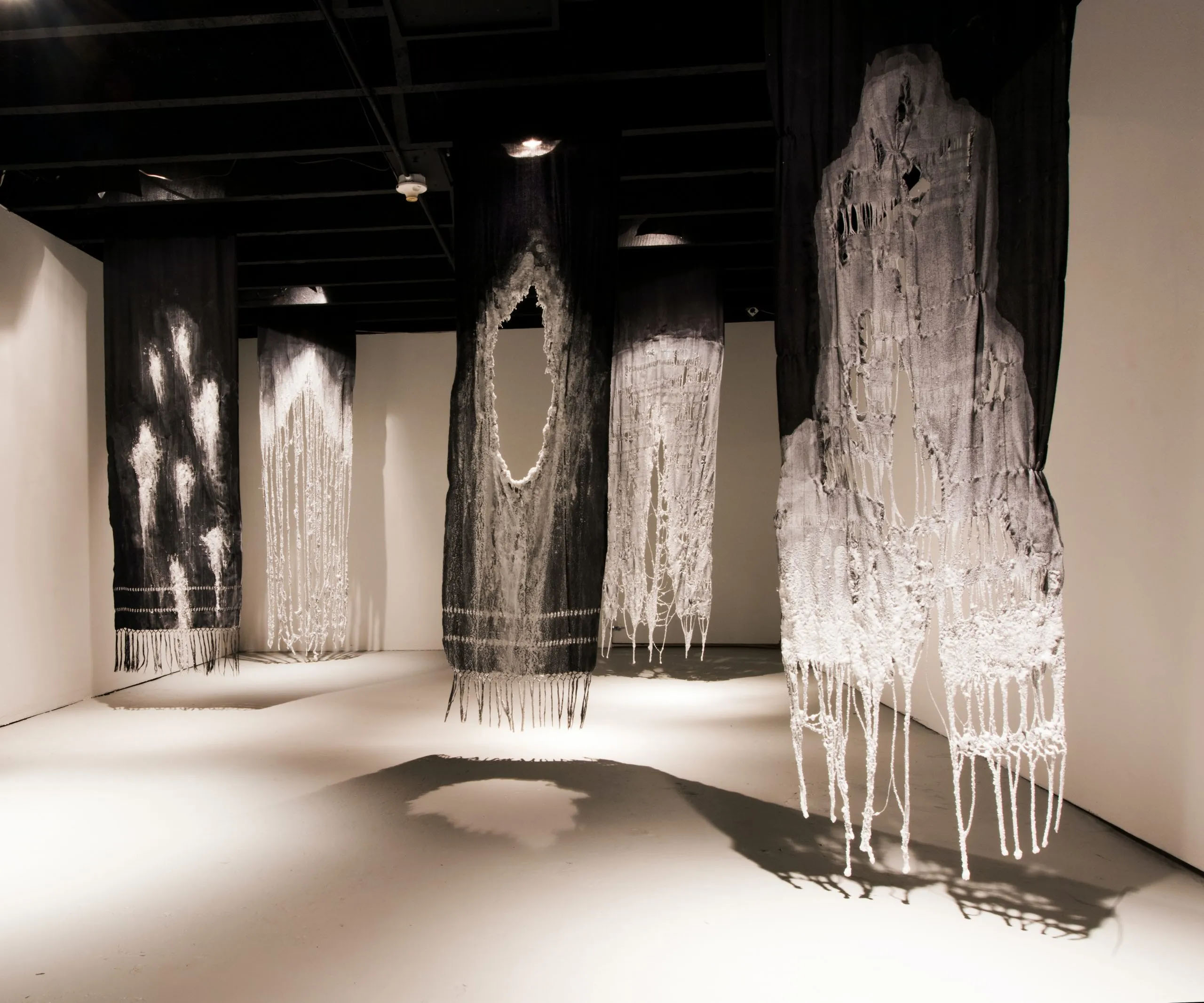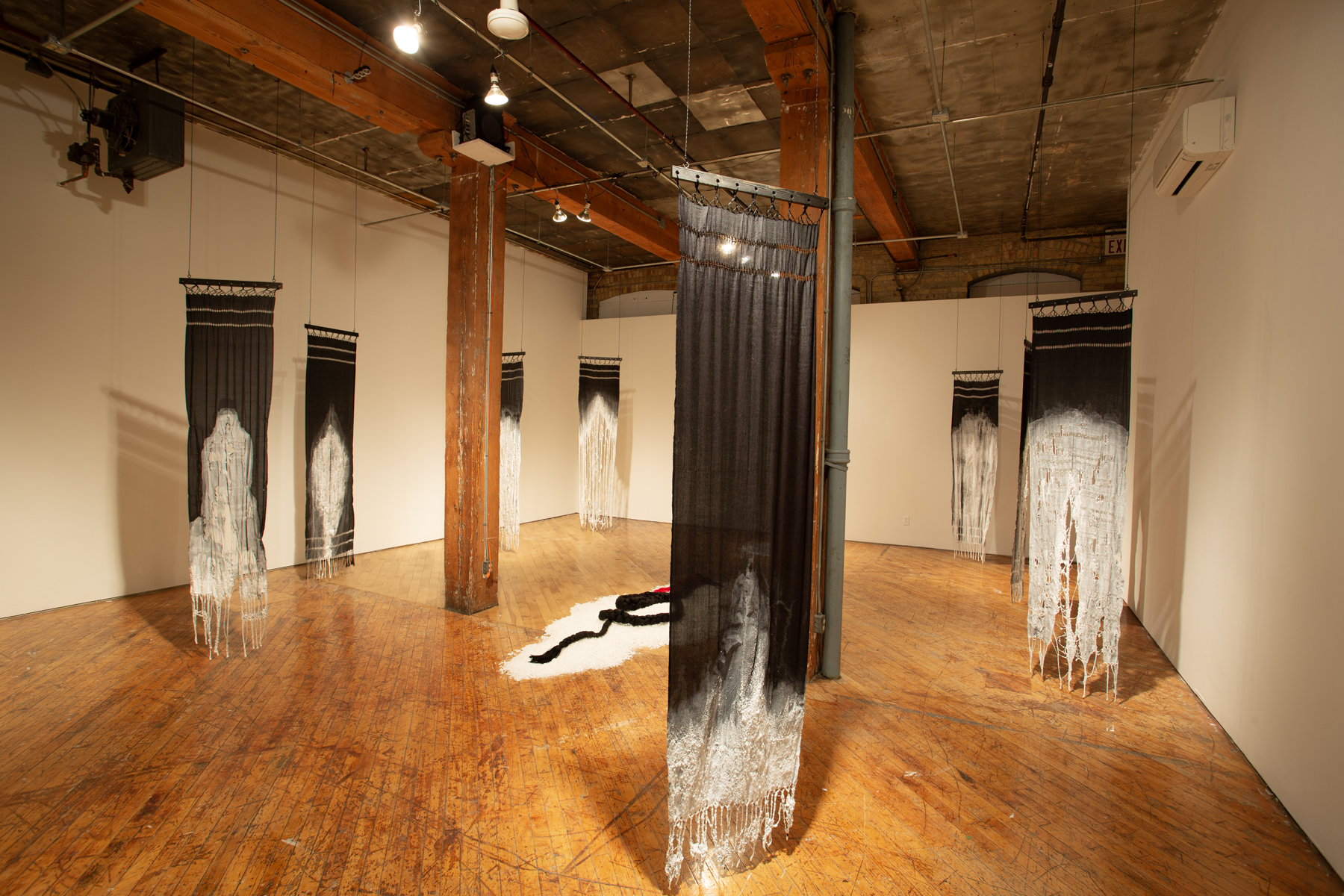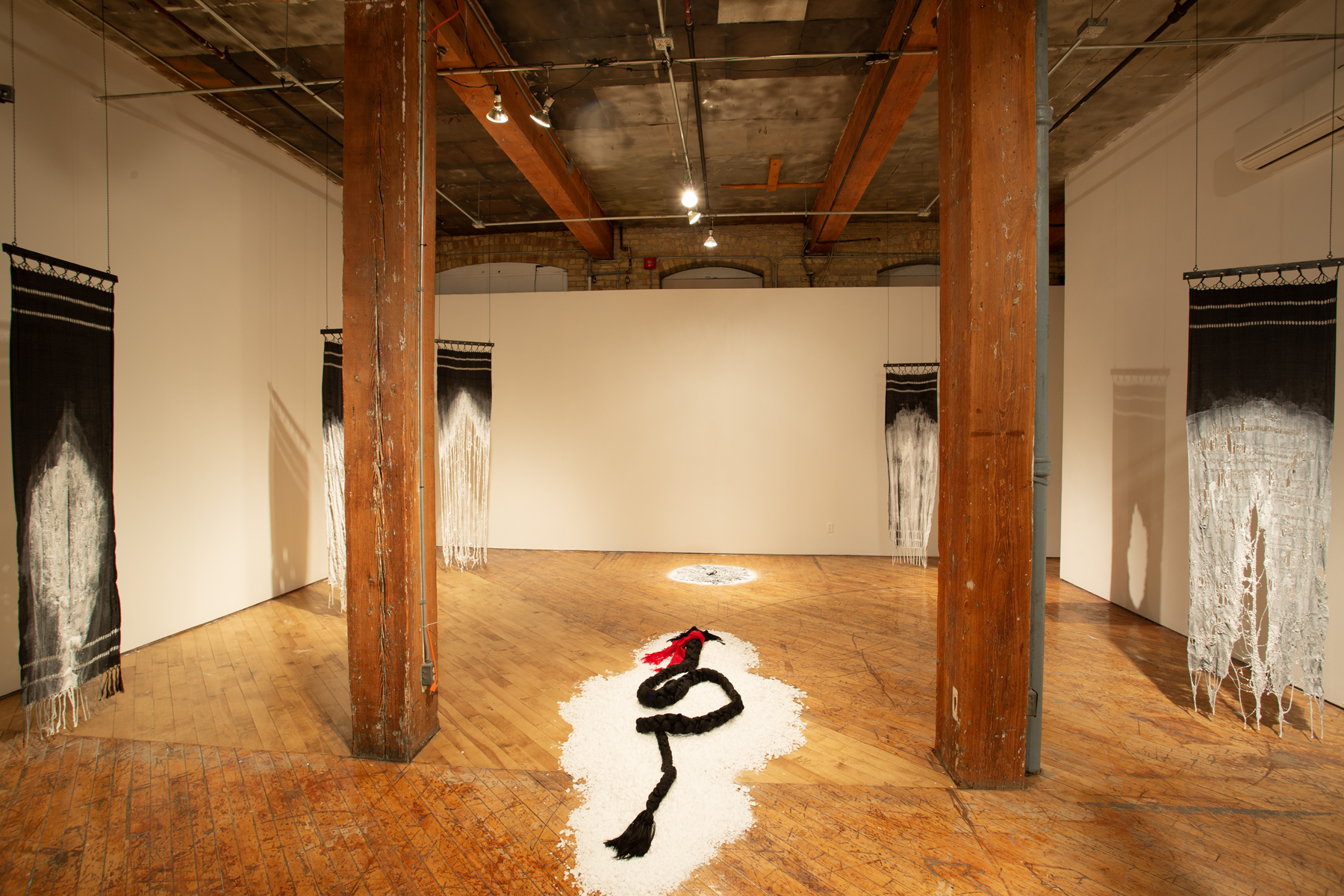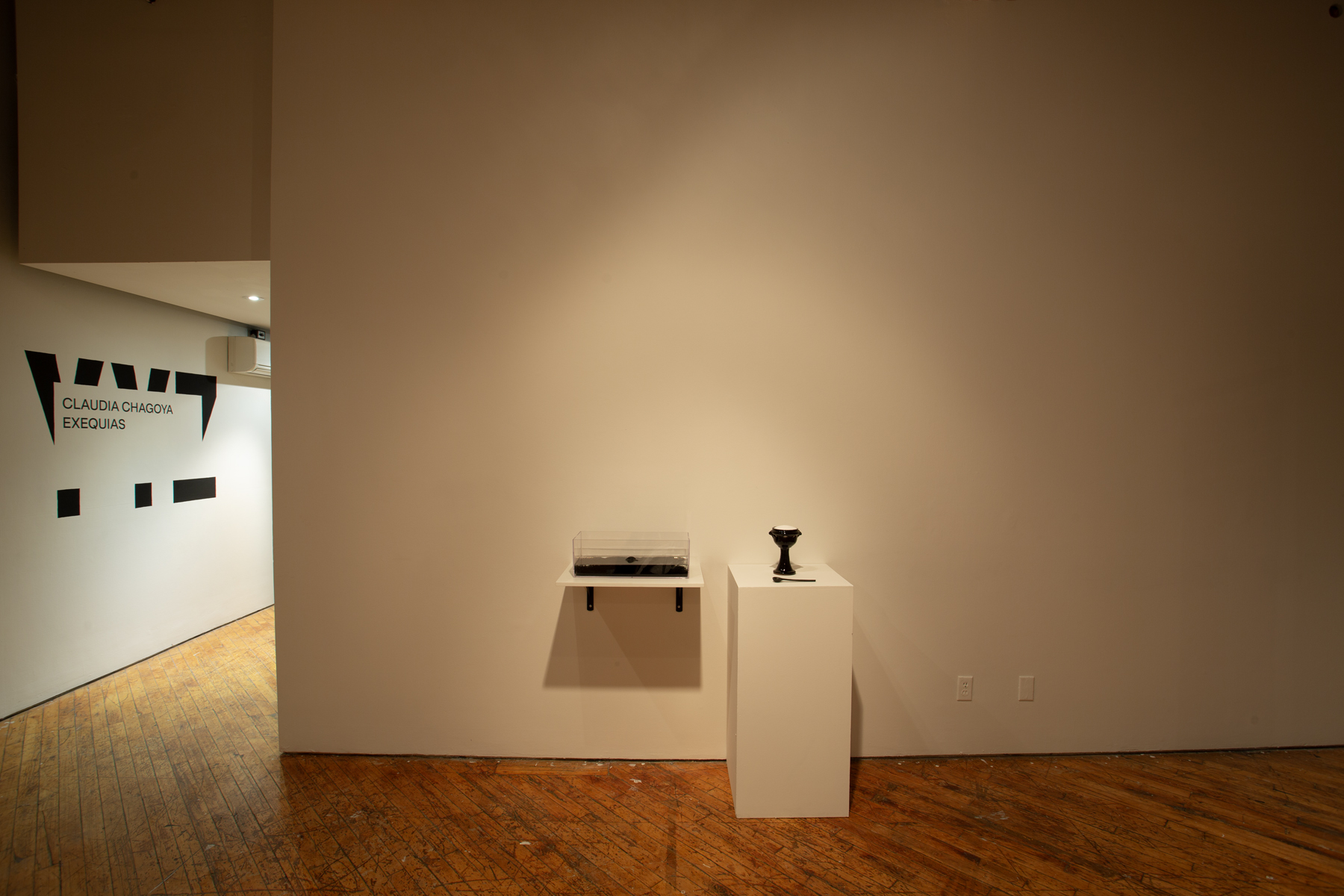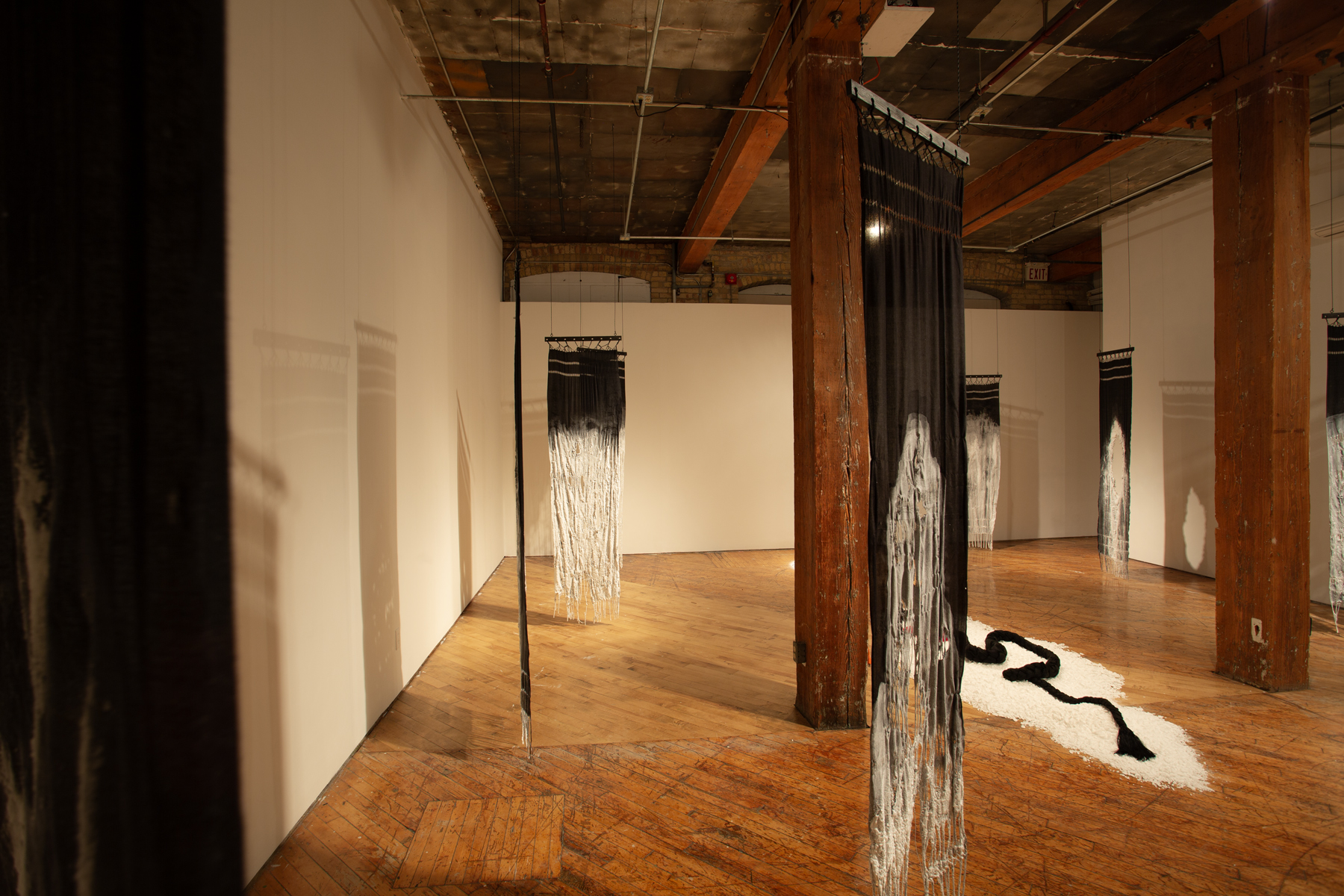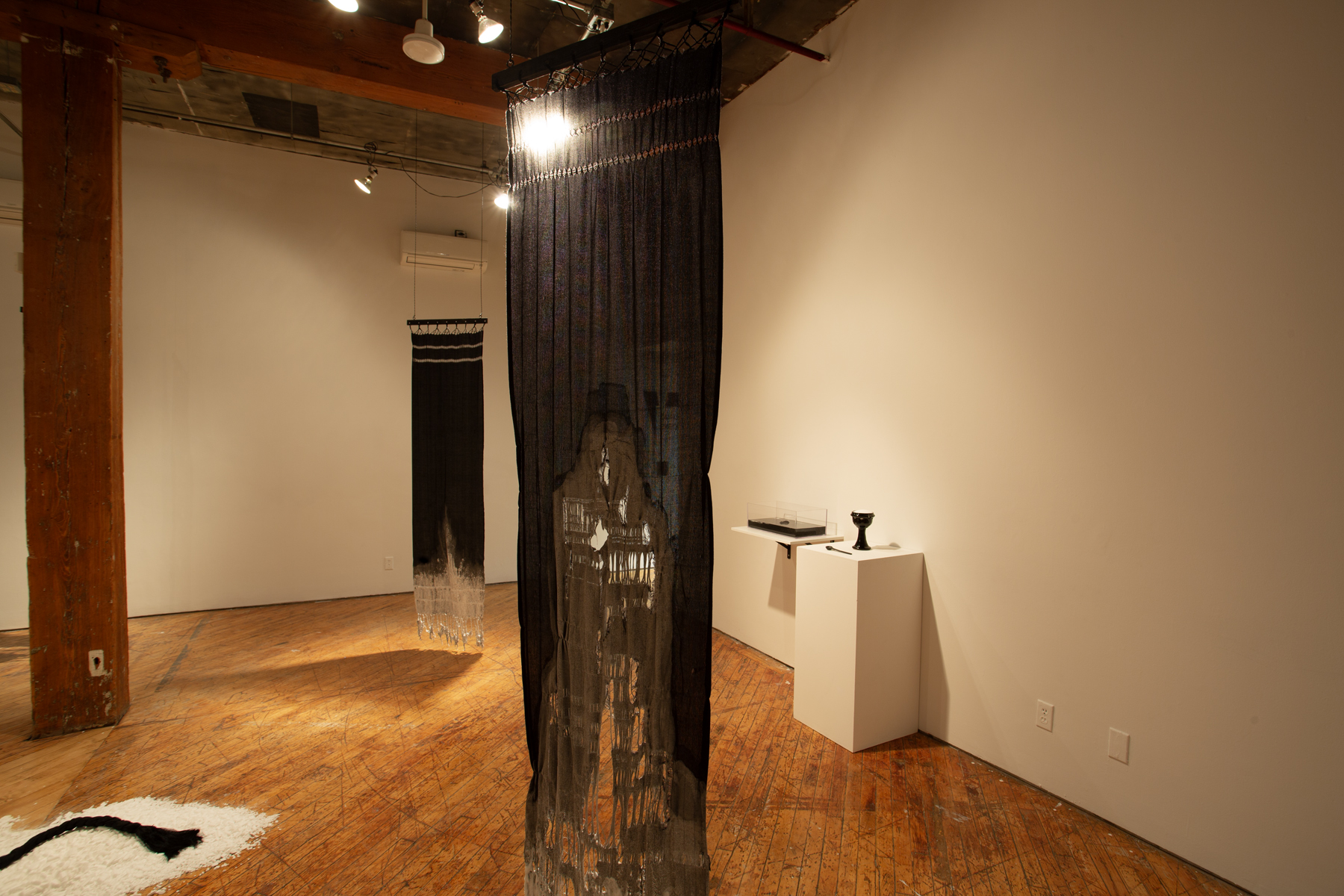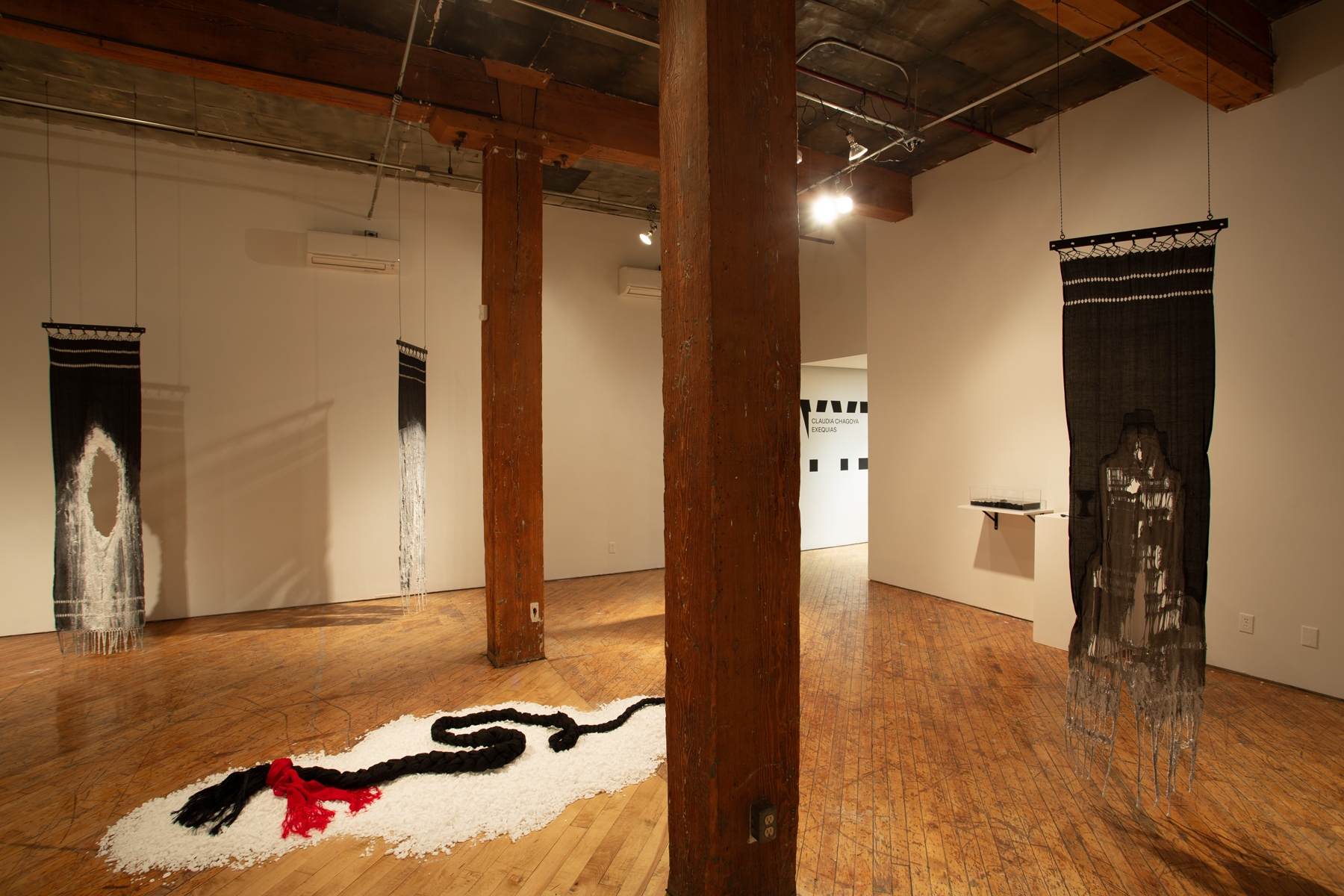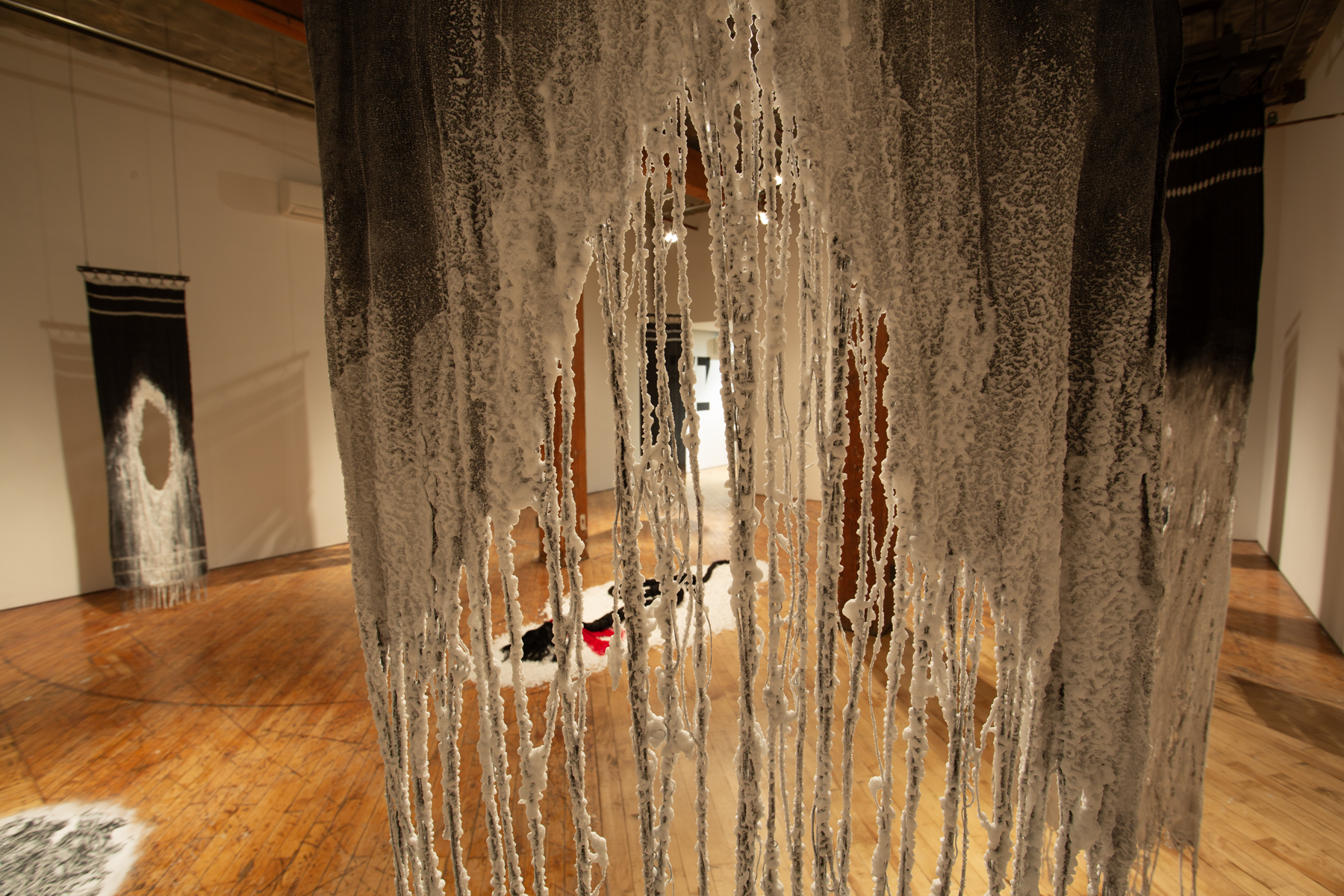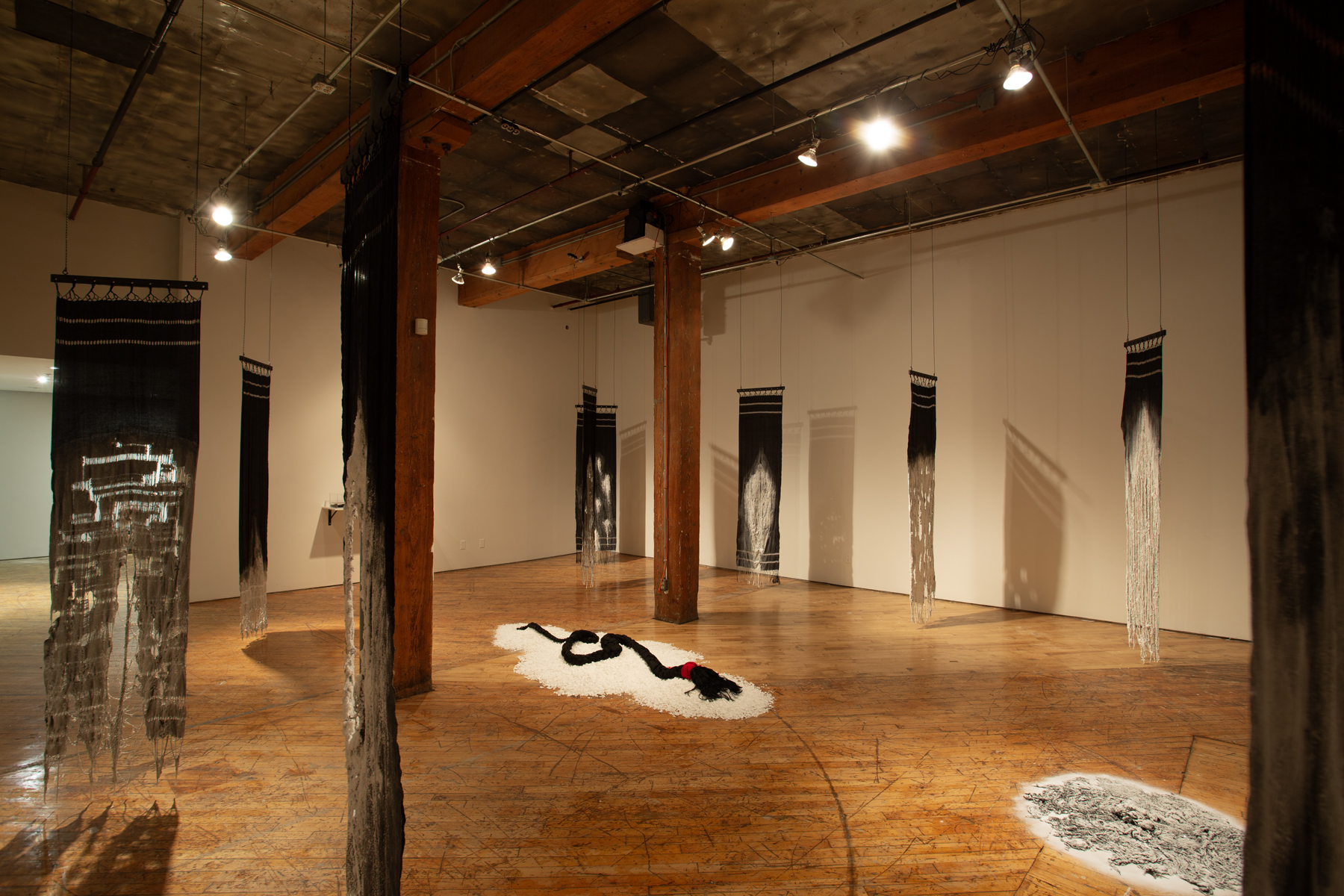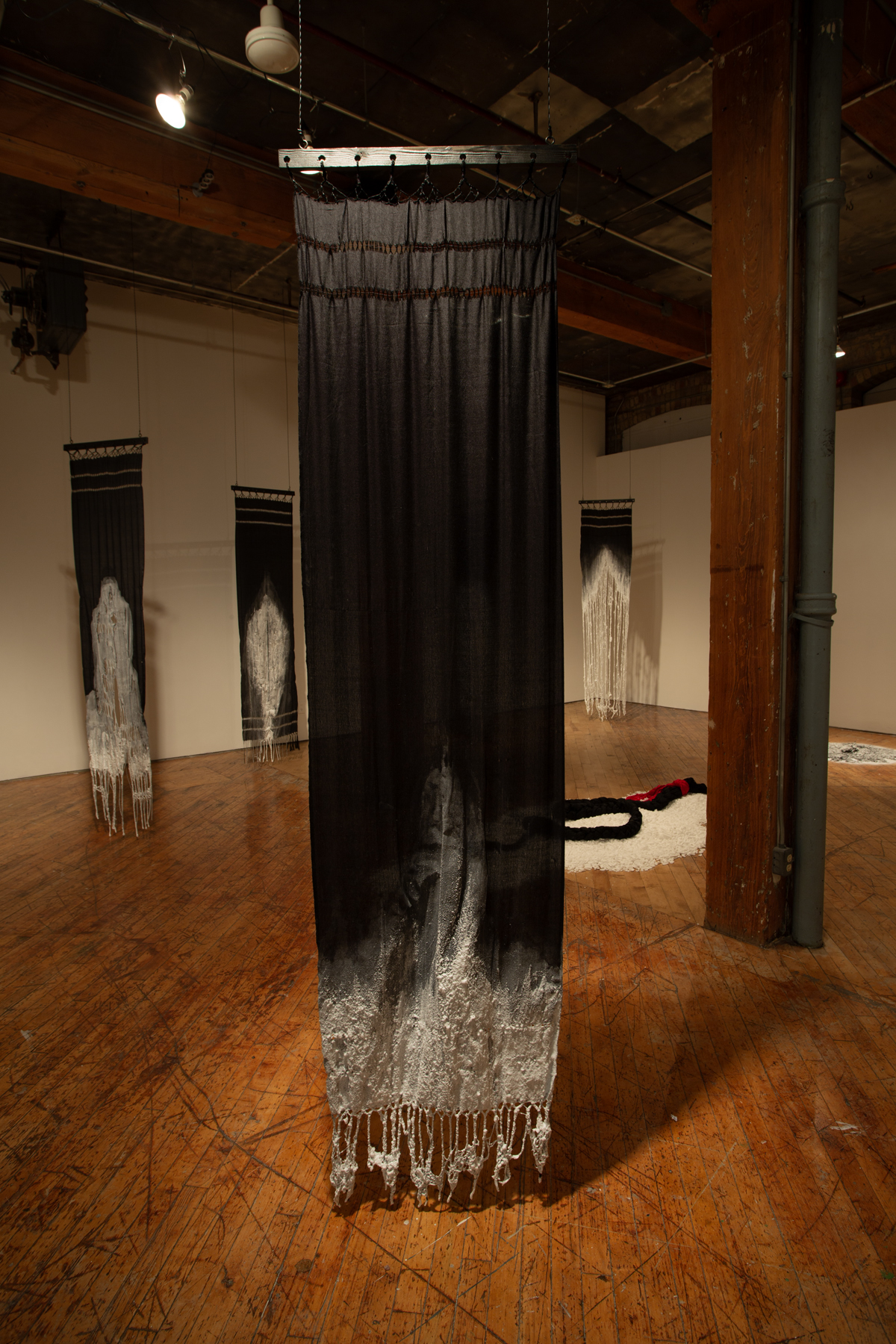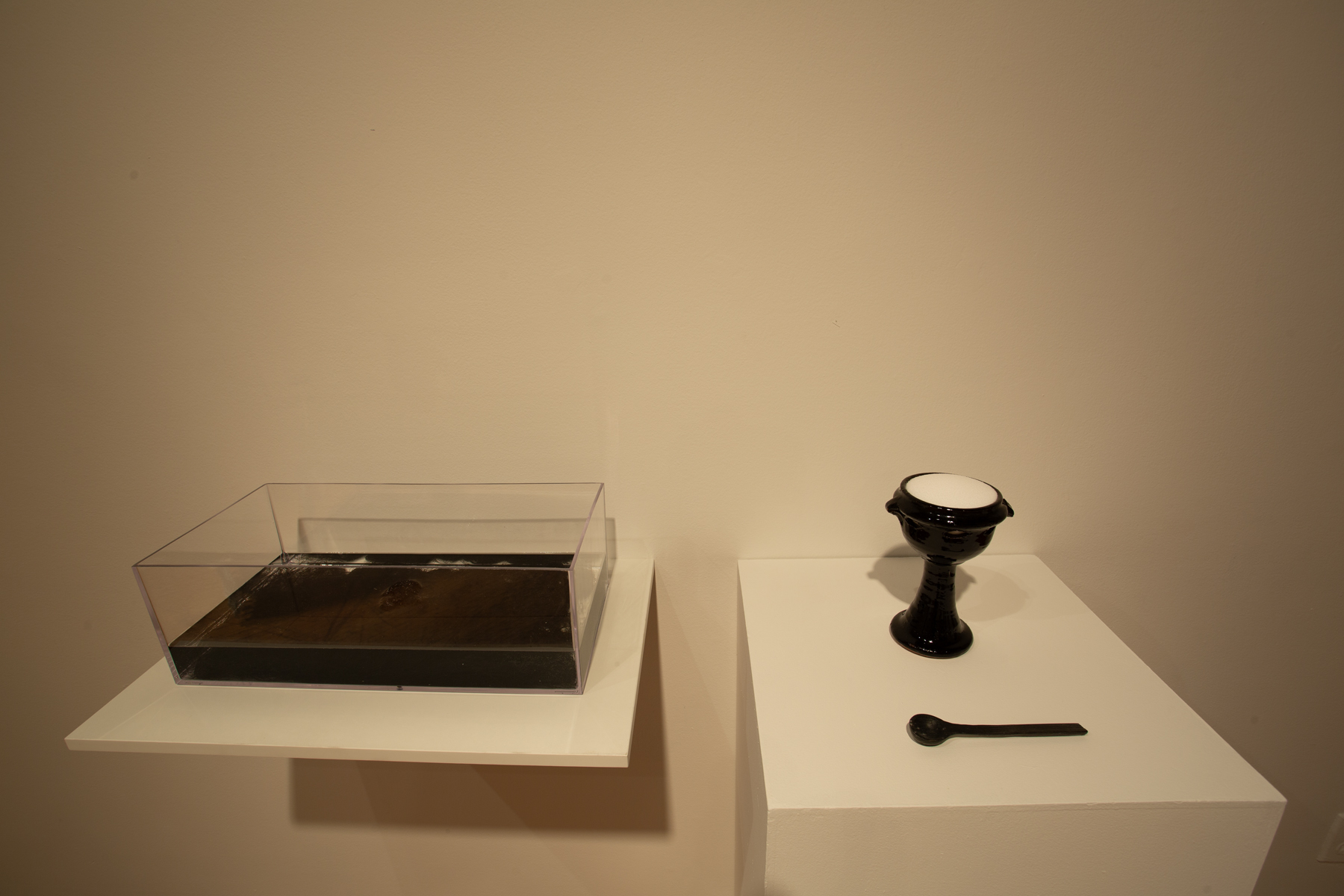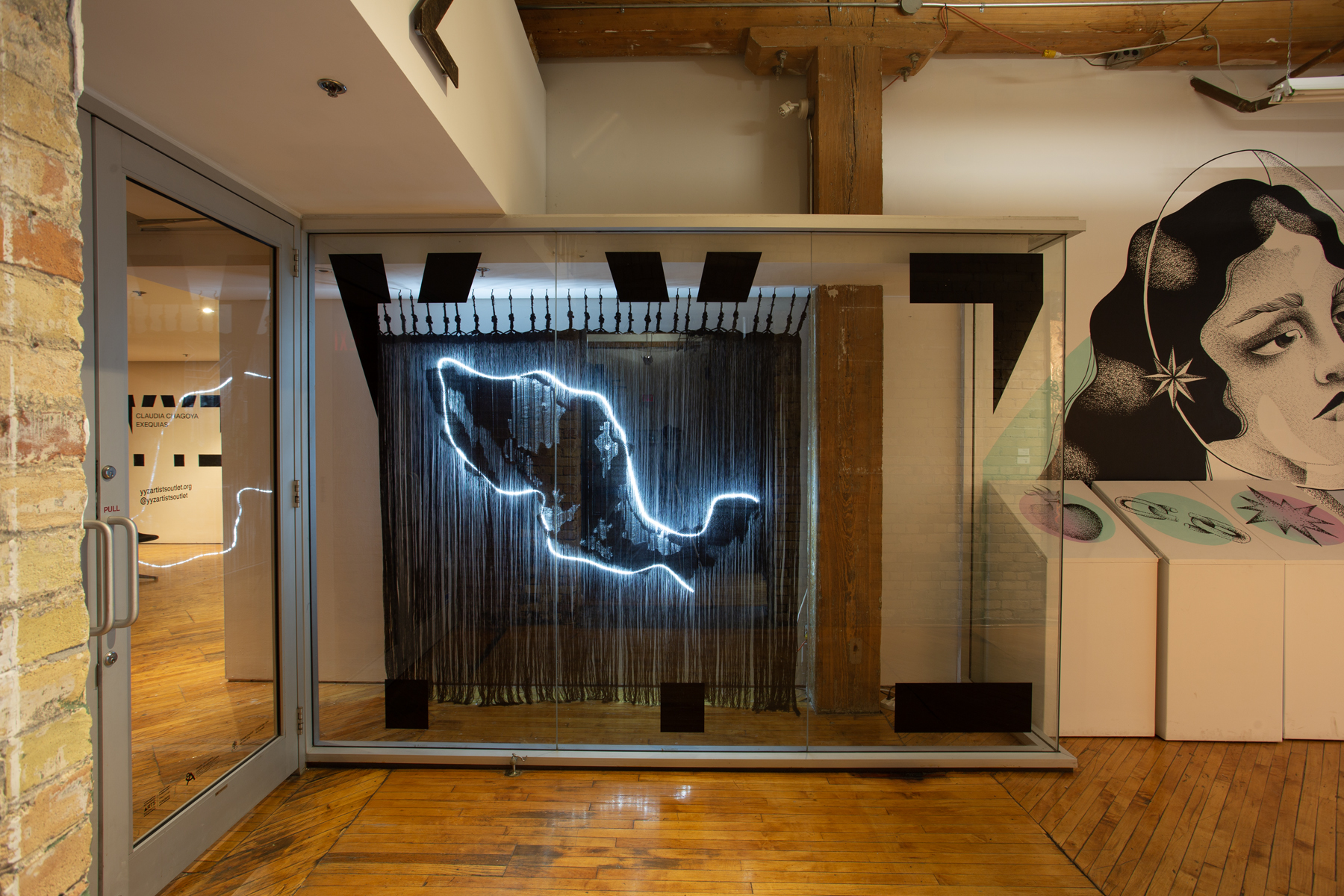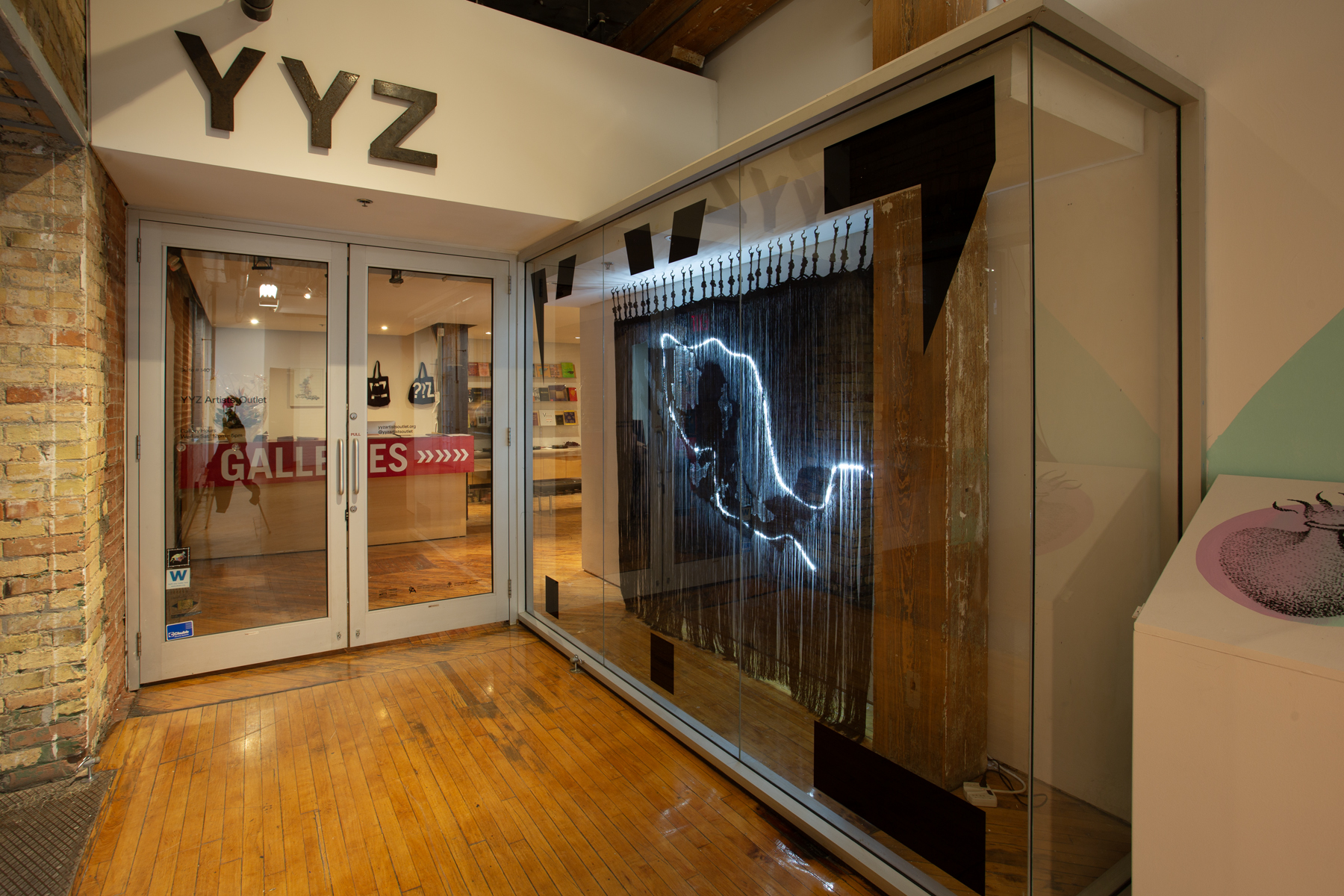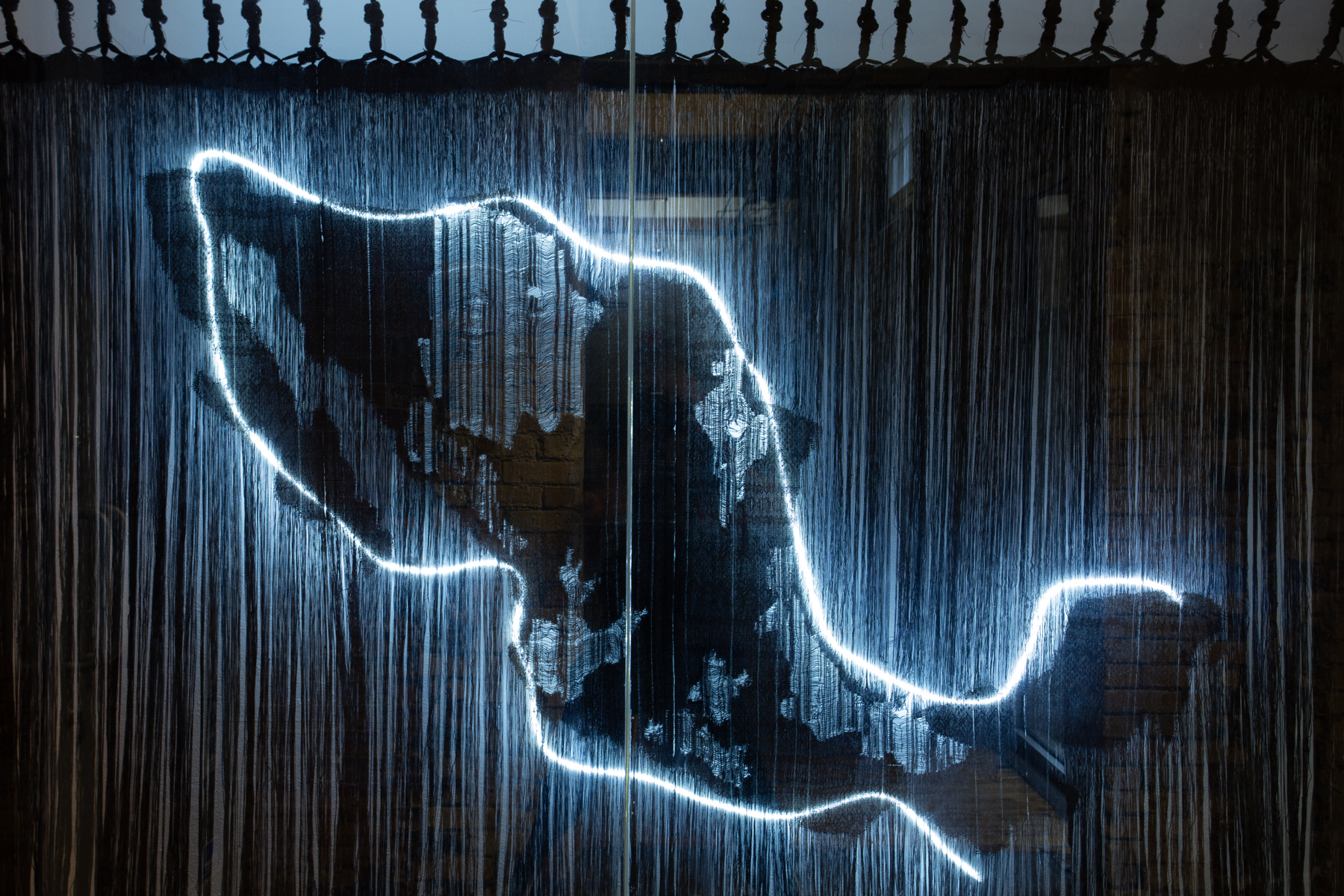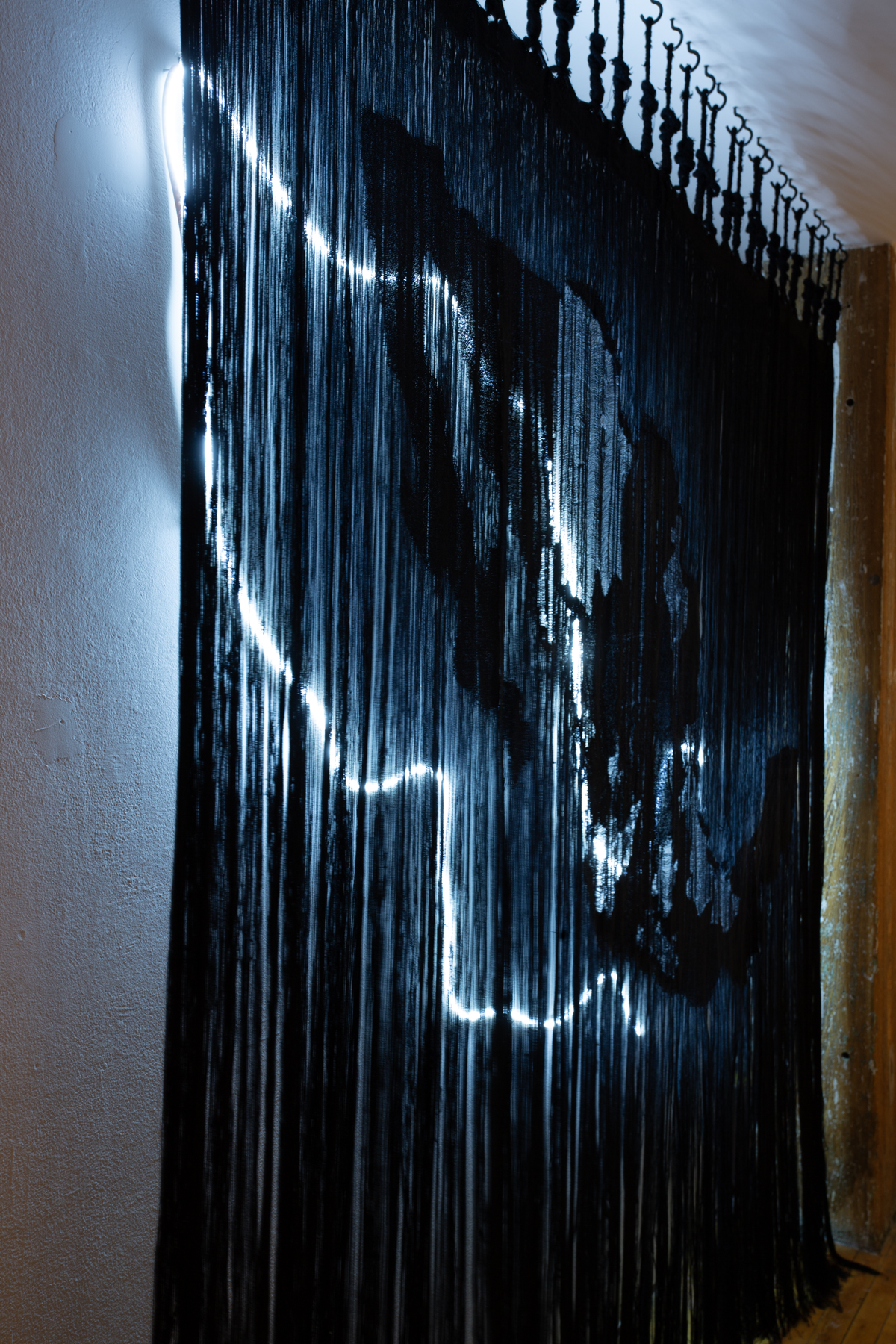“Exequias” (ehk-seh-kyahs) means obsequies or funeral rites in spanish. Specifically, exequias are ceremonies that allow us to show respect and pay tribute to the person who has passed away. EXEQUIAS compiles work that addresses the aftermath of Feminicide in Mexico. Feminicide is the killing of women because of their gender, in which outrageous acts of violence are perpetrated towards the victims. This term encompasses the imbalance of the gender power structures. The authorities’ corruption and negligence has resulted in thousands of women and girls being killed each year. This neglect profoundly impacts victims’ families, hindering their possibility of overcoming this tragedy. EXEQUIAS centers on this disruption of the grieving processes, paying respect to the thousands of women, girls, transgender women, and women-identifying people who have been murdered in Mexico. I explore these themes using materials rooted in my Mexican cultural background: rebozos, traditional shawls linked to gender roles and to death practices, and salt, a purifying element present on the Day of the Dead
ofrendas.
The salt-crystallized rebozos of the exhibition were created by the constant dripping of water and salt. This process slowly reduced these embodied entities to a skeletal appearance. These “bodies” endure the passage of time, leaving only mementos behind: bones and hair preserved in salt. The accompanying audio features overlapping women’s voices, which evoke feelings of unease, mirroring the affected families’ impotence. It seems that the only option left is to pray. These unintelligible voices whisper novenario prayers in Spanish, with one phrase standing out from the rest: Ruega por nosotras (pray for us), emphasizing women’s plight. The intention behind Unweaving Foundations, the work displayed in the vitrine window, comes from pondering on how one death deeply affects the interactions of a Mexican family. So, looking at the rebozo as Mexico’s infrastructure, the cutting and pulling away of threads in a repetitive manner, represent the murders and how this constant violence weakens the whole structure.
EXEQUIAS seeks to blend the silence of mourning with whispered prayers in an experiential space. It aims to offer a quiet environment for contemplation, sharing the anguish of grieving families. EXEQUIAS intention is to invite the community to mourn together and enable social engagement through the contemplation of mourning rituals within an artistic practice. I consider grief as a unique but shared experience, especially when feminicide is present worldwide. It is crucial to involve individuals in this issue in order to discover fresh approaches to fostering supportive communities and promoting cross-cultural understanding.
Documentation: Allan Kosmajac
Documentation
Artist Bio
Claudia Chagoya
Claudia Chagoya is a Mexican interdisciplinary artist born in Zacatecas, Mexico, and based in Calgary. She holds an MFA degree from the University of Calgary (2019), and a BFA from Instituto Allende in San Miguel de Allende, Mexico (2017). Her artistic practice explores topics related to gender violence and her socio-political background, using materials rooted in Mexican culture such as: rebozos, salt, copal, and sawdust. She is currently developing a new body of work consisting of sculptures made of hair, funded by the Alberta Foundation for the Arts (2023-2024). Additionally, Chagoya is the recipient of the Calgary Catholic Immigration Society’s New Canadian Artist Award 2022. Her artwork is featured in ARCHIVO, an archival digital platform focused on showcasing Latin American Artists living in Canada. Her work has been exhibited in Mexico and in Canada, including the group show Reimagining Mourning at Sur Gallery in Toronto (2021). Furthermore, her work forms part of the collection of the Alberta Foundation for the Arts (2023).
